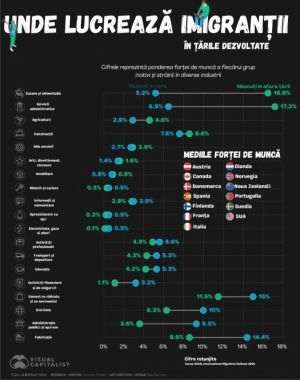The ad-hoc Committee for the elaboration of a comprehensive international convention on combating the use of information and communication technologies for criminal purposes, within the UN, starts today, in New York, a new round of debates and negotiations regarding the new United Nations treaty on cybercrime, the discussions being scheduled to be completed on September 1, 2023.
A global effort to combat cybercrime seems like a good idea, as online scams and cyberattacks are on the rise, and efforts to combat them would benefit from increased cooperation between states.However, current international efforts to create a new global agreement to combat cybercrime have raised serious human rights issues. The first proposal to adopt a new UN treaty was initiated by the Russian Federation in 2017 and was supported by several autocratic states, including China, Cambodia, Belarus and Iran. That proposal was contested by non-governmental human rights organizations, which argued that the respective governments intended to use the provisions of the future UN treaty to expand state control and censorship.
Article 19 and its partners have warned that the treaty risks legitimizing mass surveillance and persecution of political dissidents. "Although important improvements have been made, the first draft - which will be the subject of the current round of negotiations - still contains provisions that can be used to spy on and endanger journalists and civil society activists campaigning for respect for human rights. Previous versions of the draft treaty introduced dozens of new crimes related to online communication. (...) Fortunately, the most serious crimes against freedom of expression no longer appear in the current draft. As an unfortunate compromise, however, a new article now allows the criminalization of other unspecified crimes. These vague and undefined provisions could be included in the scope of the treaty. Even more worryingly, the draft significantly expands the tools that states can use to collaborate and share data, on a potentially unlimited scale," says Barbora Bukovska , legal director of the Article 19 organization, in an opinion published by the website Euractiv.de.
She points out that in recent years, countries such as Thailand, Sudan and Jordan have enacted cybercrime laws that serve, under the pretext of combating "disinformation" or the spread of "religious hatred," to punish and harass the media and political dissidents.
Regarding the document that will be debated, starting today, in the UN ad hoc commission, in New York, Barbora Bukovska specifies that a series of provisions apply not only to the main cyber crimes mentioned in the treaty, such as cyber attacks or fraud information technology, but also "other crimes committed with the help of a computer system" and allow the collection of evidence for "any crime".
Moreover, the draft international treaty gives a great freedom of regulation to the UN member states and assures the parties that the legislation of each member state provides procedural guarantees regarding the confidentiality of personal data and respect for human rights.
"In reality, many states do not have national laws enshrining the respect for the confidentiality of personal data or human rights. It is not difficult to imagine a situation where, for example, a state requests legal assistance to obtain information about a journalist critical of the regime who is in another country. In some countries, they are protected by national privacy and human rights laws, but in many others they are not. This lack of protection exposes journalists, dissidents and civil society to the risk of increased government surveillance. In several places, the contract refers to partnerships with the private sector, which is a possible tool for the active prevention of cybercrime. Without procedural safeguards, such partnerships could lead to the installation of viruses in software programs, the injection of malware into phones mobile devices and the ability of governments to require private companies to share data about user activities. These concerns are not hypothetical - the Pegasus scandal has shown how willing some governments are to use sophisticated technology to spy on journalists and critics of central authorities," notes Barbora Bukovska.
According to Article 19, a problem is that the text of the future treaty encourages the exchange of information to verify the use of "covert activities", and this can serve as a pretext for investigations and suppress the use of privacy tools such as end-to-end encrypted services such as such as Signal or WhatsApp, or anonymous browsing and routing tools such as VPNs and TOR.
That is why the representatives of the quoted NGO claim that the current form of the treaty would legitimize the legislative abuse of some states to monitor dissidents, to cancel any criticism, and would weaken the existing standards at a time when many states feel increasingly encouraged to violate the principles of multilateral cooperation based on respect for human rights. They believe that, with the start, today, of the negotiations taking place in New York, several amendments should be included in the text to guarantee respect for human rights, because, otherwise, the future treaty risks becoming an international white paper for those who want to attack freedom of expression, the right to privacy and endanger individuals and communities around the world.
We note that at the end of June, the EU Council approved the surveillance of journalists, in cases related to the protection of national security. It is about an amendment introduced by France and approved by the majority of the representatives of the member states in the EU Council, to the future European Act for the Freedom of the Media (EMFA).
The Council's decision was contested by the European Federation of Journalists, whose representatives appeal to the European Parliament and the European Commission to withdraw the amendment on the protection of national security.
"We are disturbed by the dangerous gaps in the Council's position, which show a disregard for the principles of press freedom. Article 4's national security exception to source protection and protection from surveillance technology is a blow to press freedom. It would put journalists even more at risk and, in addition, create an alarming effect on whistleblowers and other sources. We know too well how the defense of national security is abused to justify the violation of press freedom. This EMFA was supposed to generate confidence. Member states generate mistrust," said Renate Schroeder, director of the FEJ.
"National security is a classic exception. It opens the door to all kinds of abuse," said Julie Majerczak, head of the Brussels bureau of Reporters Without Borders (RSF), who calls the amendment approved by the EU Council a "Pandora's box."
The EU Council's proposal regarding the text of the future European Act for Mass Media Freedom is at the European Parliament, which will debate the draft regulation in both the LIBE and JURI committees, before presenting a report for debate and adoption to MEPs.
























































